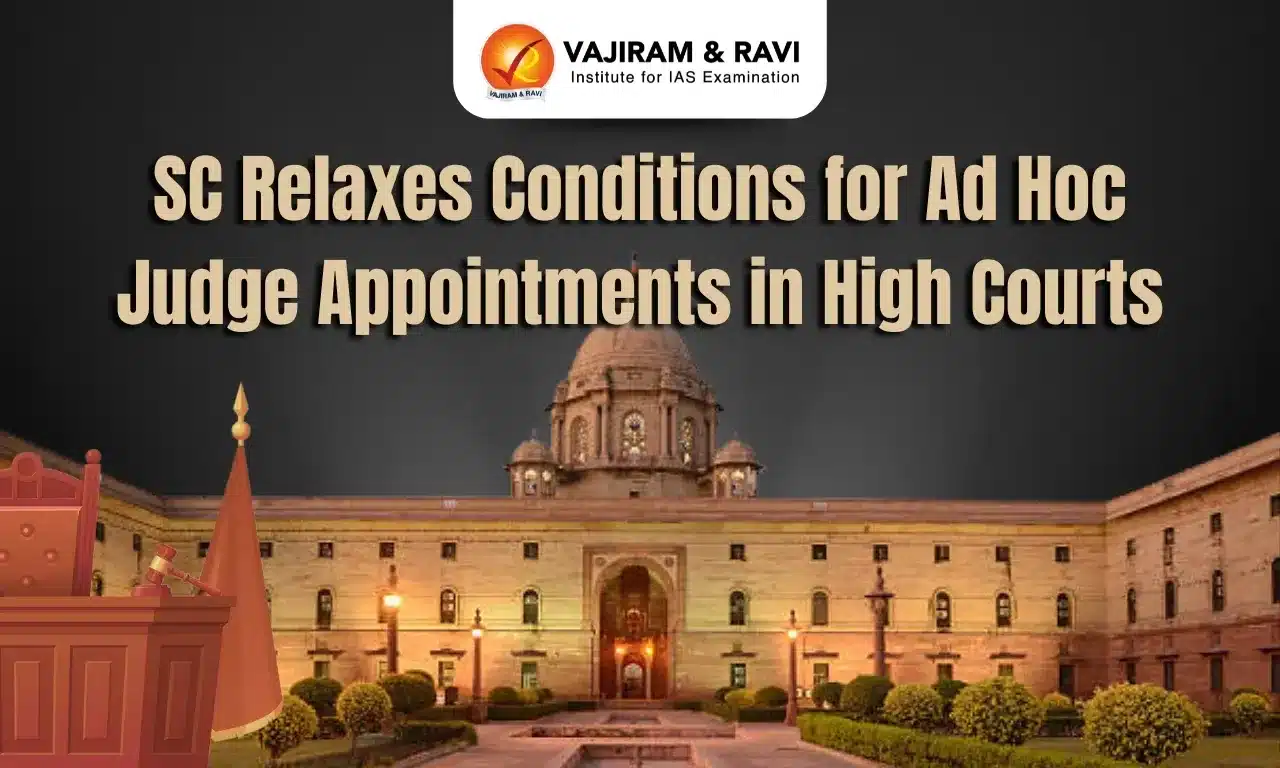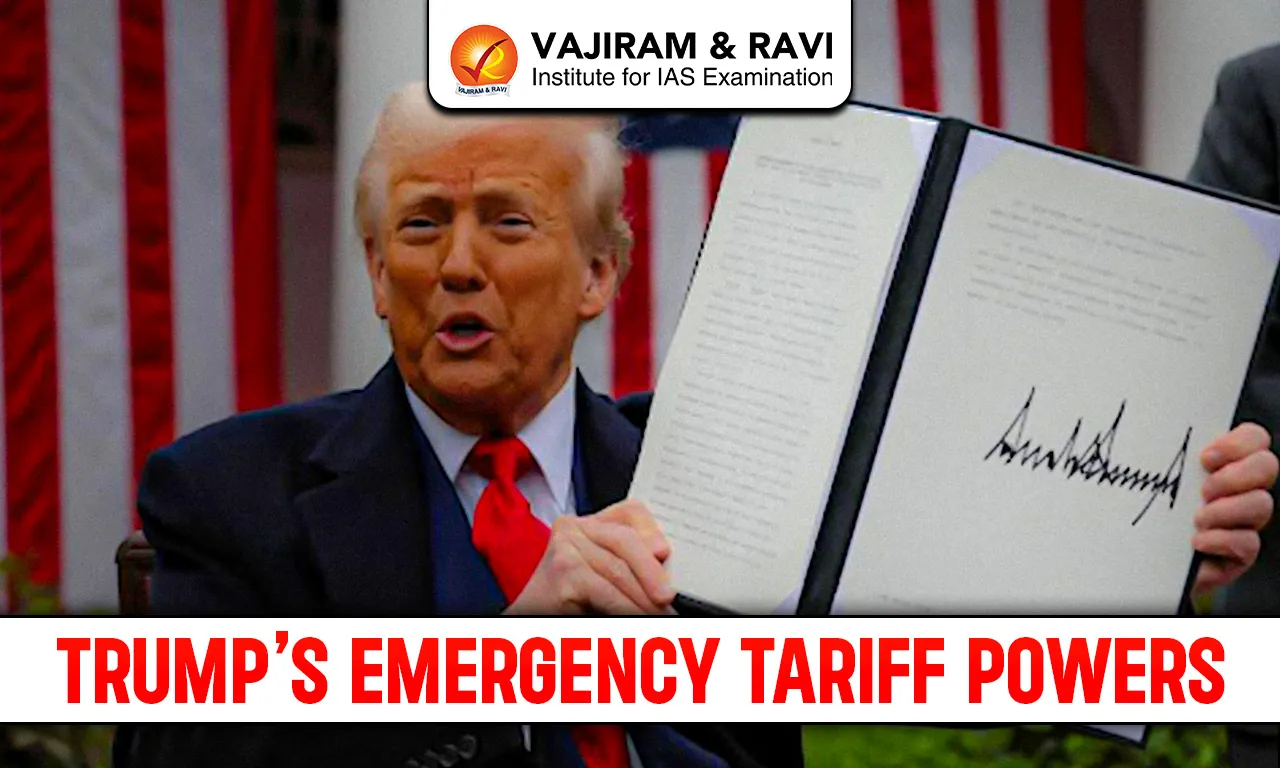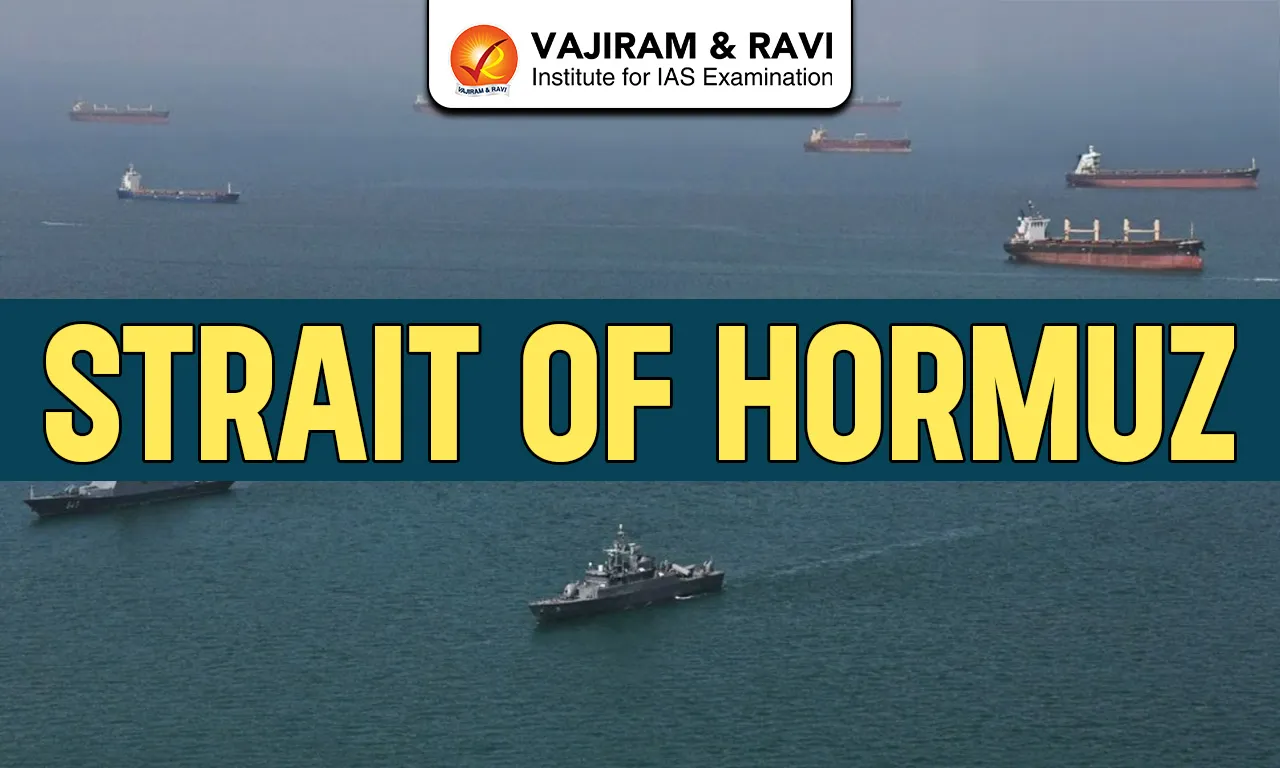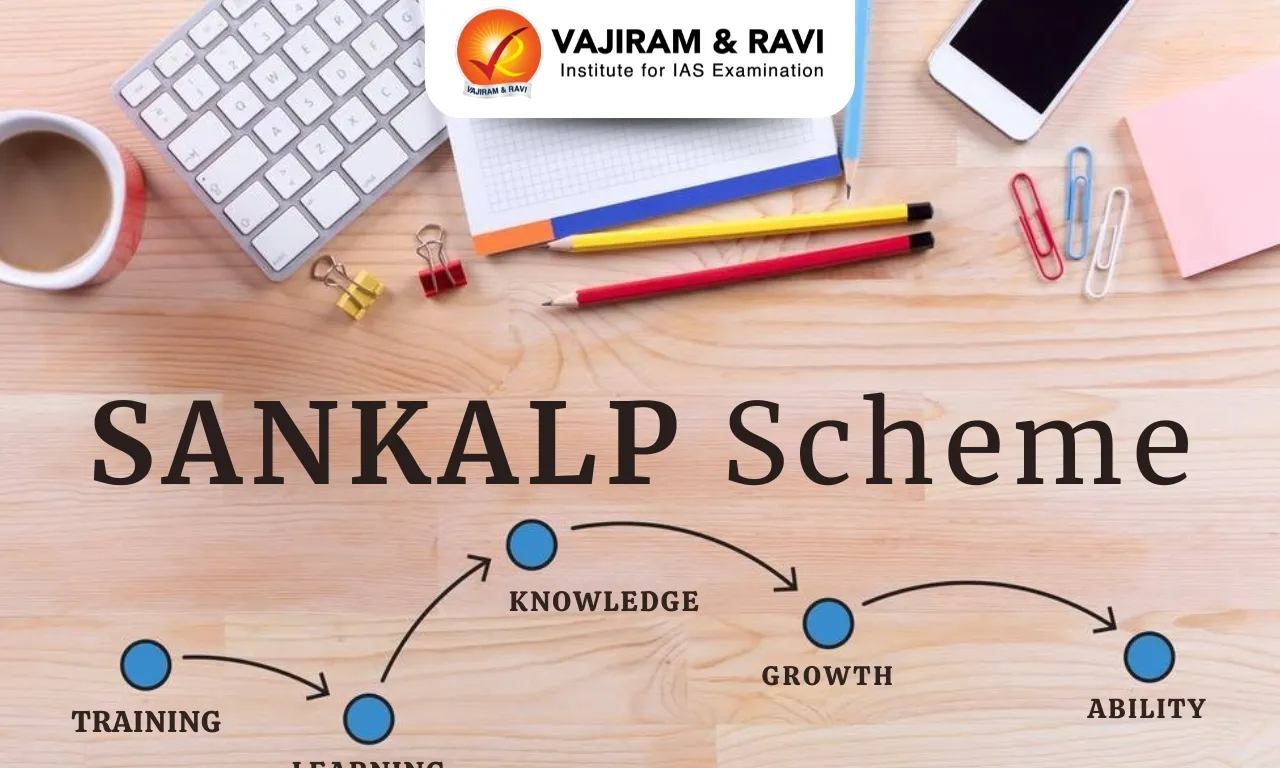What’s in Today’s article?
- Ad hoc judges in High Courts Latest News
- Article 224A: Appointment of Retired Judges in High Courts
- Lok Prahari versus Union of India
- Condition for Appointment of ad hoc Judges to HCs relaxed
- Modification of Earlier Conditions
- Ad hoc judges in High Courts FAQs
Ad hoc judges in High Courts Latest News
- The Supreme Court has eased its previous condition for appointing ad hoc judges in High Courts to clear pending criminal cases.
- It ruled that ad hoc appointments can be made even if vacancies do not exceed 20% of the sanctioned strength.
- The 20% condition was imposed by the Supreme Court in an April 2021 judgment in the Lok Prahari versus Union of India case.
Article 224A: Appointment of Retired Judges in High Courts
- The Chief Justice of a High Court, with the President’s prior consent, can request a retired judge of that or any other High Court to serve as a judge in that state’s High Court.
- Such judges will have the same jurisdiction, powers, and privileges as regular judges but will not be considered permanent judges.
- Their allowances will be determined by the President’s order.
Lok Prahari versus Union of India
- In Lok Prahari v. Union of India (2021), the Supreme Court invoked Article 224-A of the Constitution to allow the appointment of ad hoc judges in High Courts to address the backlog of cases.
- It set guidelines ensuring such appointments occur only after efforts to fill regular vacancies.
- The Chief Justice of a High Court may exercise this discretion if:
- vacancies exceed 20% of the sanctioned strength,
- cases in a category have been pending for over five years,
- over 10% of pending cases are older than five years, or
- the disposal rate is lower than the rate of new case filings.
Condition for Appointment of ad hoc Judges to HCs relaxed
- The Supreme Court has allowed High Courts across India to appoint retired judges on an ad-hoc basis to address the backlog of criminal cases.
- These judges will only hear criminal appeals in benches headed by a sitting High Court judge.
Guidelines for Appointment
- A special bench comprising Chief Justice of India Sanjiv Khanna and Justices BR Gavai and Surya Kant ruled that:
- Chief Justices of High Courts can recommend retired judges for appointment.
- Each High Court may appoint 2 to 5 ad-hoc judges, not exceeding 10% of its sanctioned strength.
Modification of Earlier Conditions
- The Supreme Court modified and kept in abeyance certain conditions set in its April 2021 ruling by then CJI SA Bobde, including:
- The earlier requirement that vacancies should not exceed 20% of sanctioned strength before appointing ad-hoc judges.
- The restriction that ad-hoc judges could sit separately on benches to deal with cases.
No Fixed Timeline for Appointments
- The Supreme Court declined a request to set a fixed timeline for appointing ad-hoc judges but emphasized that the process should begin immediately.
Addressing the Pendency Crisis
- The ruling was prompted by the acute backlog of cases.
- The High Courts have over 60 lakh cases pending, of which nearly 20 lakh are criminal appeals.
- The 80% working strength condition from the 2021 ruling had prevented ad-hoc appointments in several High Courts, such as Allahabad HC (80 judges out of 160 sanctioned strength).
Ad hoc judges in High Courts FAQs
Q1. What is Article 127 of the Constitution?
Ans. Article 127 allows the Chief Justice of India to appoint ad hoc Supreme Court judges when there is a lack of quorum.
Q2. What are Articles 126 and 127?
Ans. Article 126 allows the appointment of an acting Chief Justice of India, while Article 127 deals with appointing ad hoc SC judges.
Q3. Can a civil judge become a Supreme Court judge?
Ans. Yes, if promoted through the judicial hierarchy and appointed by the President based on recommendations from the collegium.
Q4. What is suo moto cognizance?
Ans. It is when a court takes up a case on its own, without a petition being filed, to ensure justice.
Q5. Who appoints retired judges?
Ans. The Chief Justice of a High Court can request a retired judge’s appointment with the President’s prior consent under Article 224A.
Last updated on February, 2026
→ UPSC Notification 2026 is now out on the official website at upsconline.nic.in.
→ UPSC IFoS Notification 2026 is now out on the official website at upsconline.nic.in.
→ UPSC Calendar 2026 has been released.
→ UPSC Final Result 2025 is expected to be released in the second week of April 2026.
→ Check out the latest UPSC Syllabus 2026 here.
→ Join Vajiram & Ravi’s Interview Guidance Programme for expert help to crack your final UPSC stage.
→ UPSC Mains Result 2025 is now out.
→ UPSC Prelims 2026 will be conducted on 24th May, 2026 & UPSC Mains 2026 will be conducted on 21st August 2026.
→ The UPSC Selection Process is of 3 stages-Prelims, Mains and Interview.
→ Prepare effectively with Vajiram & Ravi’s UPSC Prelims Test Series 2026 featuring full-length mock tests, detailed solutions, and performance analysis.
→ Enroll in Vajiram & Ravi’s UPSC Mains Test Series 2026 for structured answer writing practice, expert evaluation, and exam-oriented feedback.
→ Join Vajiram & Ravi’s Best UPSC Mentorship Program for personalized guidance, strategy planning, and one-to-one support from experienced mentors.
→ Check UPSC Marksheet 2024 Here.
→ UPSC Toppers List 2024 is released now. Shakti Dubey is UPSC AIR 1 2024 Topper.
→ Also check Best UPSC Coaching in India




















